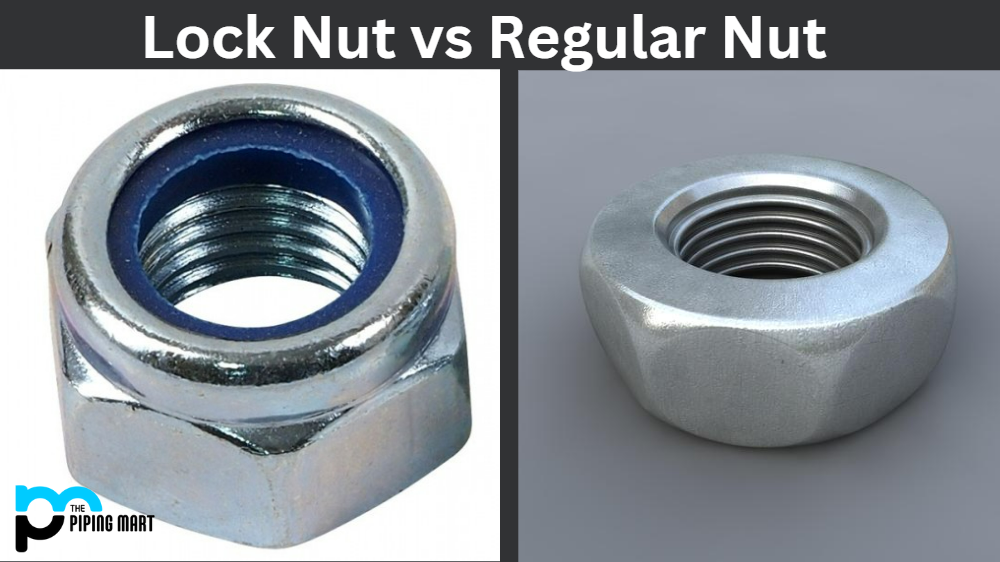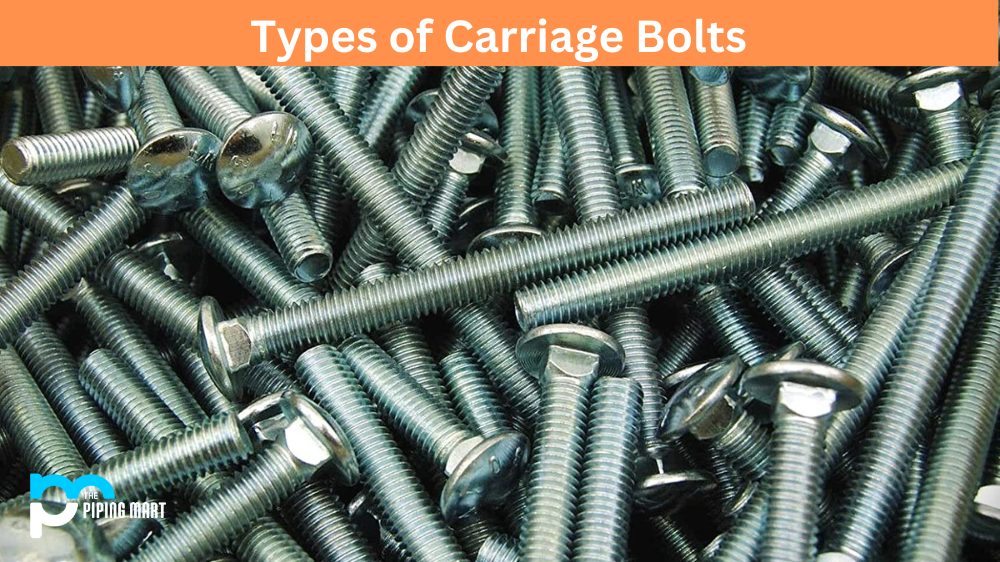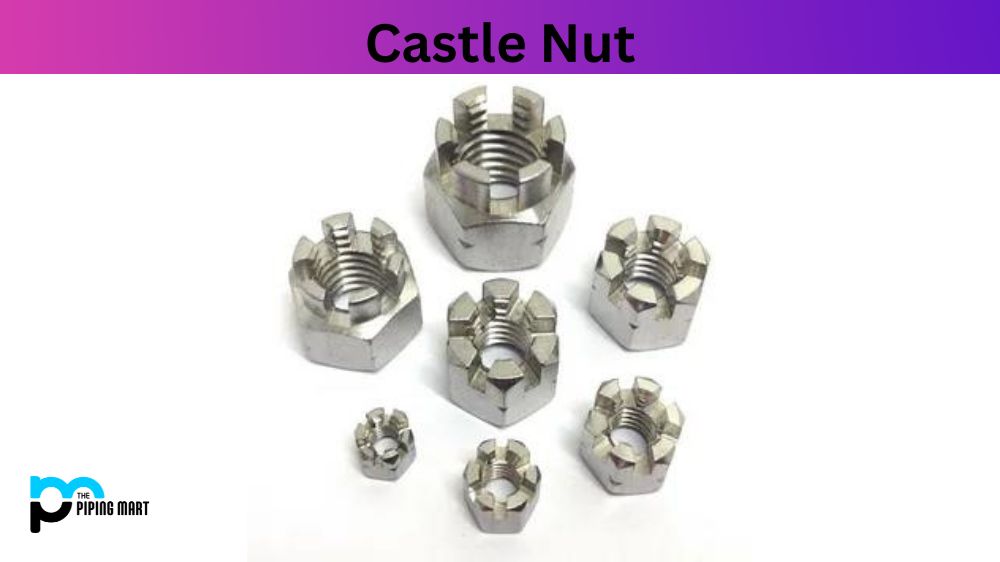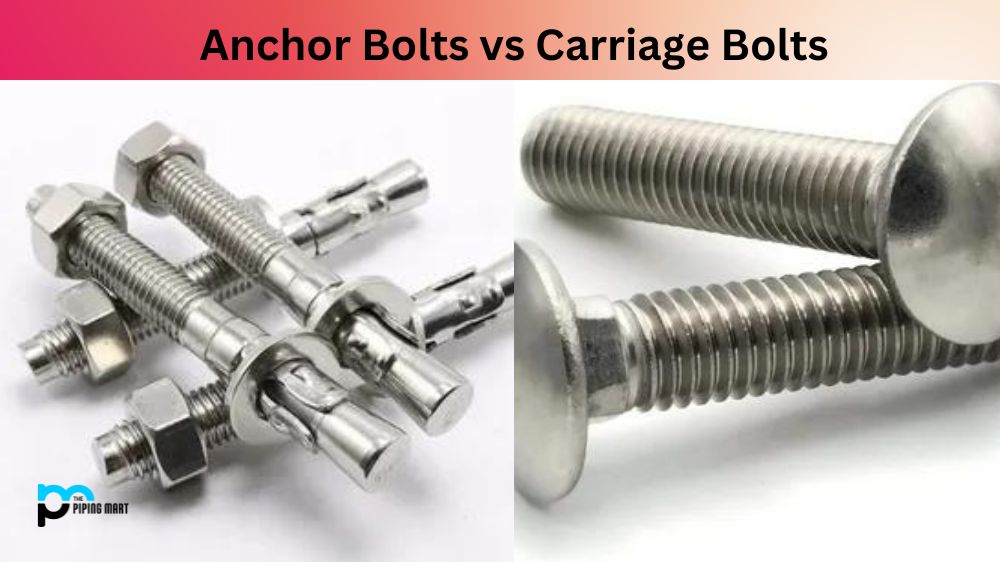Have you ever wondered what the difference between a regular nut and a lock nut is? There are several key differences between the two. Understanding these differences can help you select the right type of nut for your application. Let’s take a closer look at the differences between lock nuts and regular nuts.
Lock Nut
Lock nuts are a type of nut that is used to secure bolts or screws in place. They typically have a groove or thread on the inside that helps to grip the bolt or screw, preventing it from coming loose. Lock nuts are available in various materials, including steel, brass, and nylon.
Regular Nut
Regular nuts are a type of nut that is used to secure bolts or screws in place. They do not have a groove or thread inside, so they are not as effective at preventing the bolt or screw from coming loose. Regular nuts are available in various materials, including steel, brass, and nylon.
Purpose of Lock Nut
Lock nuts exist to keep two parts from loosening due to vibration or other external forces. This type of nut is used when extra security is needed, such as in applications that require high levels of torque or ones that will be exposed to extreme temperatures or vibrations. You might also see them used when attaching bolts or screws to something like an engine block or transmission housing, where vibration can loosen the connection over time.
How Lock Nut Work
Lock nuts have threads on both sides, so they can be tightened using two wrenches for added stability and security. The internal threads are slightly larger than the external ones, allowing them to stay in place more easily by gripping onto their mating piece more tightly than traditional single-sided nuts. Some types of lock nuts also have special features like serrated flanges that grip onto the surface they are attached to, further preventing them from loosening over time due to vibration or other external forces.
Difference Between Regular Nut and Lock Nut
Regular nuts only have a single thread pattern on one side and cannot be tightened with two wrenches for extra security as lock nuts can. They are generally used in applications that do not require additional security, such as furniture assembly, where items are unlikely to experience much vibration over time. In addition, regular nuts tend to be less expensive than locknuts because they do not require additional hardware or special features like serrated flanges for extra grip. They are also easier to install since they only need one wrench instead of two for tightening purposes.
Advantages of Lock Nut
One advantage of lock nuts is that they are less likely to come loose than regular nuts. This is because the groove or thread on the inside helps to grip the bolt or screw, preventing it from moving. Lock nuts are also available in various materials so that they can be selected based on the application’s specific needs.
Advantages of Regular Nut
One advantage of regular nuts is that they are less expensive than lock nuts. Additionally, regular nuts are available in various materials to be selected based on the application’s specific needs.
Disadvantages of Lock Nut
One disadvantage of lock nuts is that they can be difficult to remove once they have been tightened. This is because the groove or thread on the inside can grip the bolt or screw very tightly. Additionally, lock nuts are only sometimes reusable once they have been removed.
Disadvantages of Regular Nut
One disadvantage of regular nuts is that they are not as effective at preventing bolts or screws from coming loose. This is because no groove or thread on the inside can grip the bolt or screw. Additionally, regular nuts are only sometimes reusable once they have been removed.
Conclusion:
When selecting fasteners for any project, you must consider your application requirements before making your final decision. If you need extra security against loosening, locknuts should be your go-to choice since they provide better stability due to their double-threaded design and other specialized features like serrated flanges that provide superior grip on surfaces exposed to vibration and extreme temperatures. On the other hand, if your application does not require additional security against movement over time, regular single-threaded nuts may offer all the protection you need while costing less money overall, thanks to their more straightforward construction. No matter which type of nut you choose, make sure it meets all of your application requirements first!

Abhishek is a seasoned blogger and industry expert, sharing his insights and knowledge on various topics. With his research, Abhishek offers valuable insights and tips for professionals and enthusiasts. Follow him for expert advice on the latest trends and developments in the metal industry.




